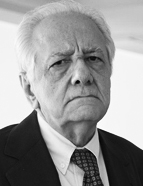

Regarding his social background, he comes from a lineage of large rural landowners in Pernambuco, often referred to as the "nobles of the land," which significantly influences much of the historian's work. Some of his family members received honours and held government positions in the Brazilian Empire. Evaldo Cabral de Mello grew up listening to stories about sugar mills. These conversations were filled with memories of Pernambuco's nativism, which was shaped by various events in the region, ranging from the occupation and subsequent expulsion of the Dutch (1630-1654) to the Confederation of the Ecuador (1824). It was precisely the sugarcane North-east — characterised by its vibrant figures embroiled in disputes and negotiations of political and economic power surrounding the wealth generated in the Zona da Mata of what was then Portuguese America from the 16th to the 19th centuries, intertwined with the complex European geopolitical dynamics — that became the primary focus of research for historian Evaldo Cabral de Mello.
Focusing on Pernambuco's Zona da Mata, a region that also encompassed parts of Alagoas and Paraíba, Evaldo Cabral de Mello reconstructed events that specifically involved the aristocracy of Pernambuco (" açucarocracia " [sugarocracy]). Drawing on local narratives without succumbing to provincialism, he challenged what he viewed as the "historiographical imperialism" of Rio de Janeiro and the Brazilian Centre-South. According to Cabral de Mello, this "Saquarema discourse" offered interpretations that were of interest to the power centre of the Brazilian empire, effectively marginalising other regions that would later contribute to the unity known as Brazil. His works positioned the North-east (formerly referred to as the North) as a focal point of study, expanding the examination of regional historical events that significantly influenced colonial Brazil within a much broader context. In this way, he examined the subject matter beyond the confines of what was then Portuguese America, revealing the conflict between the interests of the sugarocracy and those of other elites from the centre of the empire. Simultaneously, he dialectically illustrated the political instrumentation of Pernambuco's nativist discourse, which was crafted by local elites to secure favours and sustain regional power.
This work is financed by national funds through FCT - Foundation for Science and Technology, I.P, in the scope of the projects UIDB/04311/2020 and UIDP/04311/2020.
